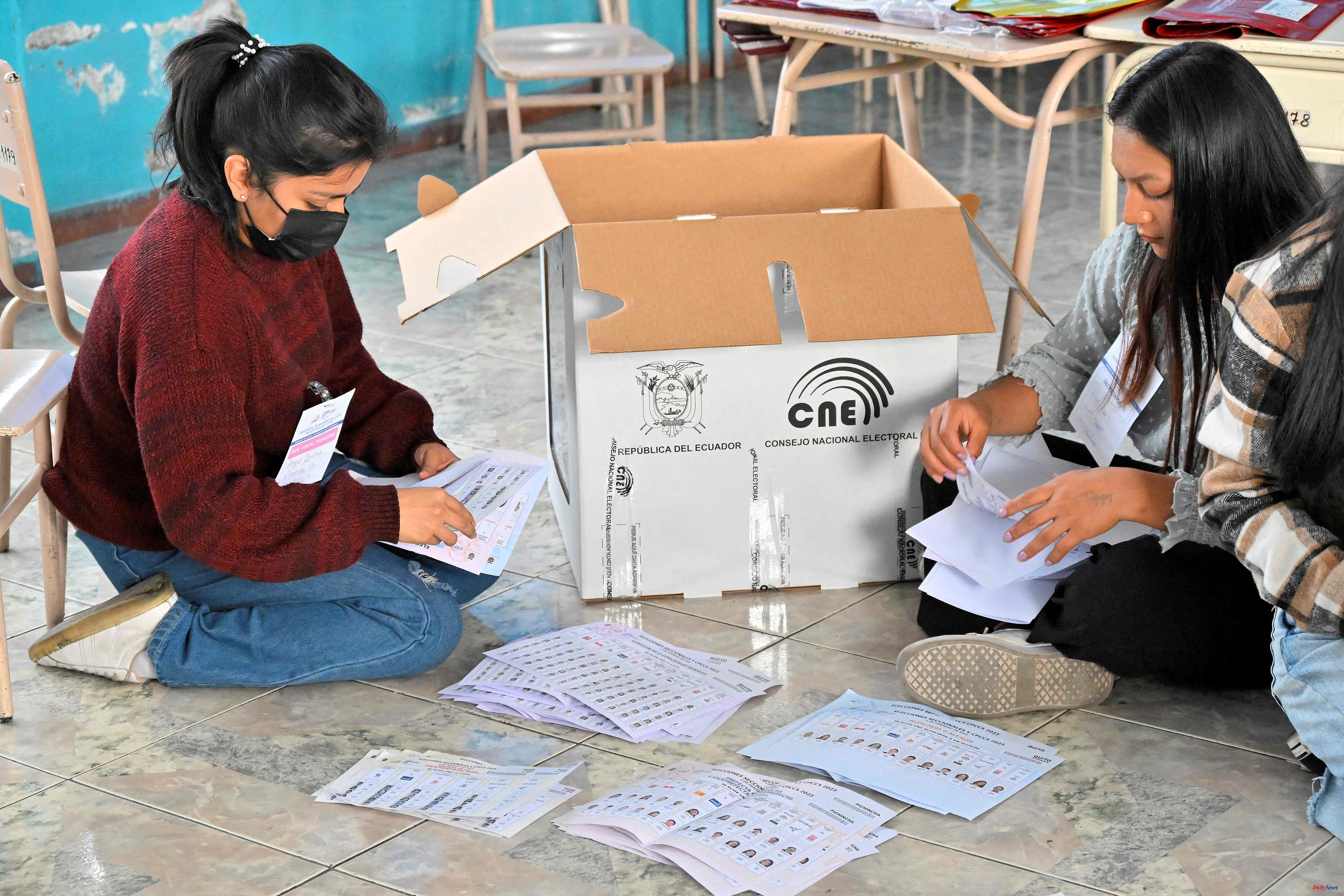The first data from electoral day in Ecuador paint a stormy horizon for President Guillermo Lasso. The slow-motion scrutiny anticipates the shift in local power and the "return" through the front door of the Citizen Revolution, despite the fact that its leader, Rafael Correa, is a fugitive from justice in his country. The former president is sentenced to eight years in prison for corruption.
More important for the conservative Lasso is the result of the popular consultation, forced by the government to recover the political pulse and which, scrutinized the first minutes, threatens to become a boomerang that would leave the "government of change" mortally wounded only two years after it was established.
The ruling party designed two questions to recover the support lost since 2021 due to administrative drift and political errors. With the first, the arrested drug traffickers would be extradited to the US and with the third, the number of assembly members would be reduced, who do not have much less popular affection. At the moment, none of the eight questions would be approved, although not even 10% of the count has yet been reached.
"The No is imposed on the 8 questions of the popular consultation, the people's total rejection of Lasso's bad government. To remain vigilant in defense of these results expressed at the polls. No more deception or traps for the people, no tanks! oxygen to the government!" exclaimed the radical indigenous leader Leónidas Iza.
From the government side, the complaints against the National Electoral Council (CNE) were based on the fact that the areas most likely to vote yes in the referendum were not counted at the beginning of the count.
What the former conservative banker, who canceled the message he was going to address to the nation after exit polls that gave him victory in the referendum, has verified is that he lacks political organization and the ability to make alliances. Quite the opposite of the Citizen Revolution, which has obtained historic results in Quito and Guayaquil, the richest and most populous city in the country.
"We became the Citizen Revolution again: we achieved the impossible," Correa boasted on Twitter. The return of correísmo has traced the trend that exists in the continent, not only because of the triumph of different lefts, but because the citizens of Latin America insist on punishing those who are ruling. A trend that this Andean country already experienced two years ago when Lasso defeated the Citizen Revolution, after a decade in government plus the period of his candidate, Lenin Moreno.
In the capital, Pabel Muñoz has imposed himself on the controversial former mayor Jorge Yunda, also ideologically close to correísmo. And in Guayaquil, the crime-ridden Pearl of the Pacific, the Social Christian Party (PSC) has lost its traditional hegemony. The new mayor, after 30 years of domination by the PSC, is Aquiles Álvarez, who has benefited from the punishment applied to the outgoing mayoress, Cynthia Viteri, and from the lurches of the PSC: he has gone from appearing in the 2021 presidential elections in alliance with Lasso to become a raging opponent in the Assembly.
"Guayaquil and Guayas are on fire, we have to be serious," declared Álvarez when the trend became irreversible. The new mayor served as vice president of Barcelona FC, the most popular soccer team in the country.
The two great prefectures of the country, Pichincha and Guayas, are also very close to the Citizen Revolution. "We assume the challenge of unifying the capital and the province, it is time to turn the page. We must attend to the most urgent problems," announced Paola Pabón, prefect of Pichincha.
According to the criteria of The Trust Project












